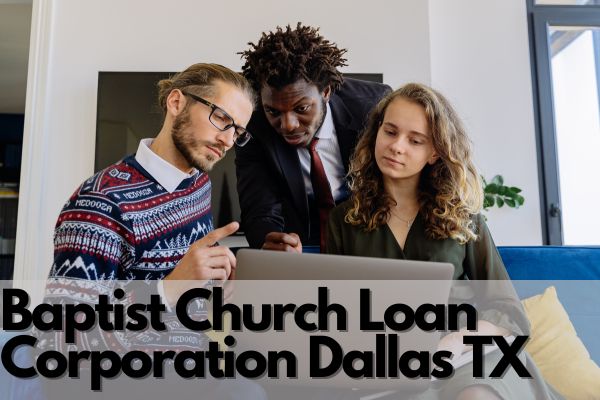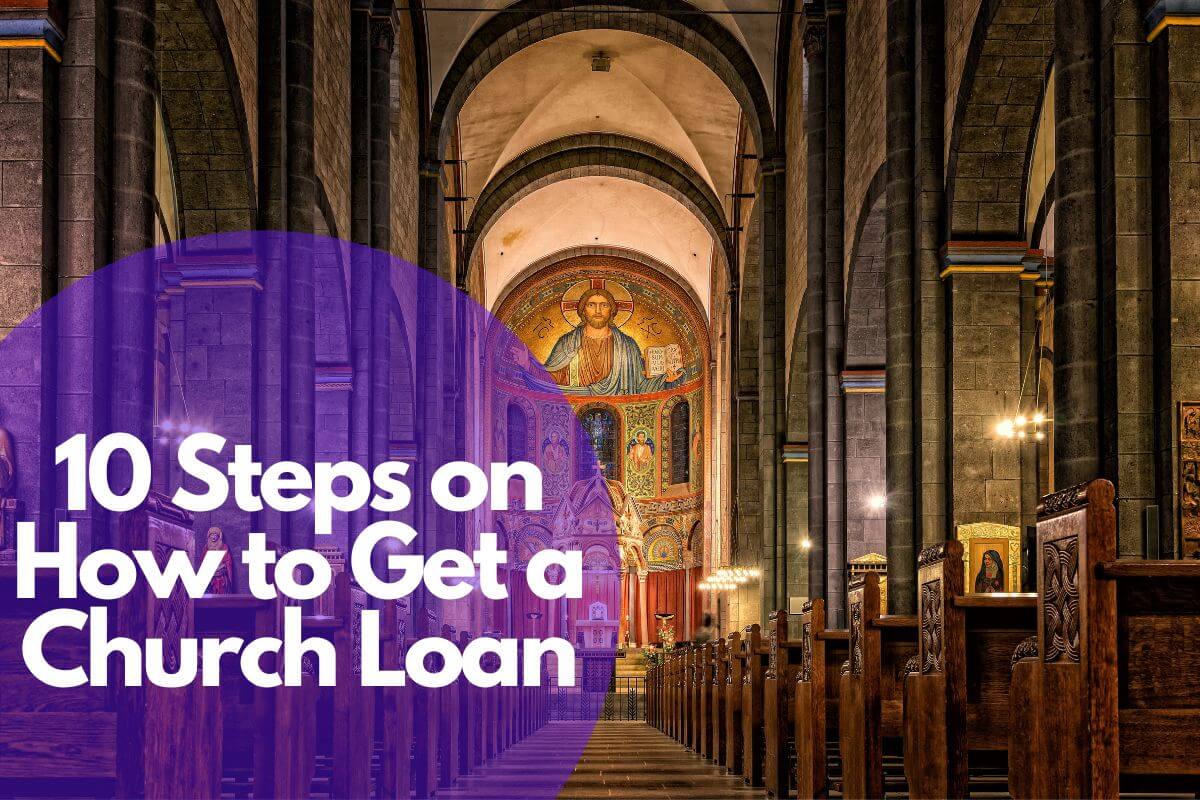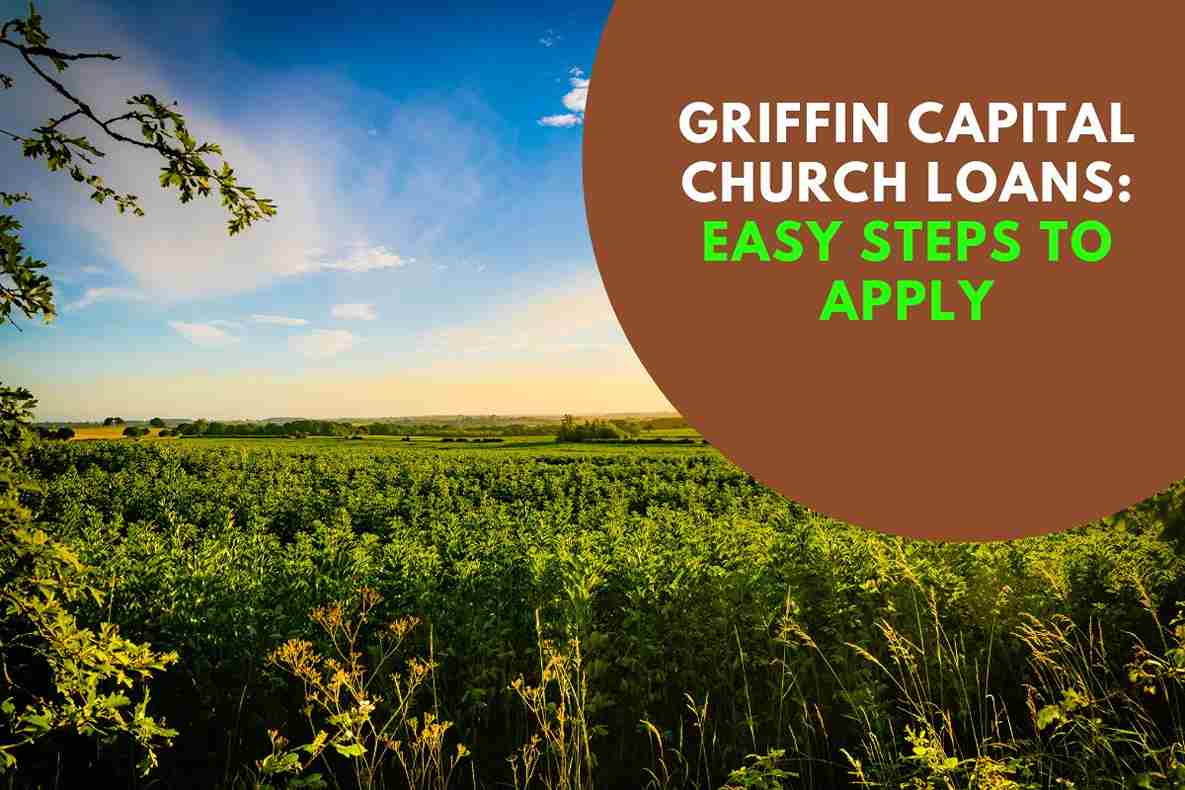Small business loans offer a viable solution for churches seeking financial support. In this article, we will explore the top 25 churches’ small business loans to apply for, outlining the eligibility criteria, loan types, and application process.
By the end of this article, churches will have the knowledge and resources they need to make an informed decision and secure the financial support they need to continue serving their communities.
25 Churches Small Business Loan To Apply
1. SBA 7(a) Loans
These loans are designed to provide churches with funding for a variety of purposes, such as working capital, equipment purchases, and refinancing existing debt. The SBA guarantees a portion of the loan, making it easier for churches to obtain funding.
2. SBA 504 Loans
These loans provide churches with long-term, fixed-rate financing to acquire fixed assets, such as land, buildings, and equipment.
3. SBA Express Loans
These loans provide churches with funding for working capital and equipment purchases, with a quicker application and approval process than traditional SBA loans.
4. Community Development Financial Institution (CDFI) Loans
These loans are offered by non-profit organizations that provide financing to churches and other businesses in underserved communities.
5. Microloans
These are typically small loans of up to $50,000 designed for small businesses with less established credit histories.
6. Merchant Cash Advances
These loans provide churches with an upfront cash advance in exchange for a percentage of future credit card sales.
7. Business Lines Of Credit
These loans provide churches with a predetermined amount of credit that can be drawn on as needed, making it easier to manage cash flow.
8. Equipment Financing Loans
These loans are specifically designed to finance the purchase or lease of equipment, such as audiovisual equipment, computers, and vehicles.
9. Short-Term Loans
These loans provide churches with funding to meet short-term cash flow needs, with repayment terms typically ranging from 3-18 months.
10. Crowdfunding
This is a form of fundraising where a large number of people contribute small amounts of money to support a specific project or initiative.
11. Business Credit Cards
These cards provide churches with a revolving line of credit that can be used to make purchases, pay bills, and manage cash flow.
12. Factoring
This financing option involves selling outstanding invoices to a third-party, which provides the church with cash upfront in exchange for a fee.
13. Personal Loans
In some cases, church leaders may be able to obtain a personal loan to help fund church expenses.
14. Business Grants
Churches may be eligible for grants from various organizations and government agencies, which provide funding for specific projects or initiatives.
15. Church Bond Programs
These programs allow churches to issue bonds to investors in exchange for funding, with interest paid to investors over a set period of time.
16. Revolving Credit Facility
This type of loan provides a set amount of credit, which can be drawn on and repaid as needed.
17. Term Loans
These traditional loans provide a lump sum of cash upfront, which is repaid over a fixed term with interest.
18. Invoice Financing
These loans are based on outstanding invoices, with the lender advancing a percentage of the invoice value to the borrower.
19. Working Capital Loans
These loans provide churches with funding to cover short-term cash flow needs, such as payroll, inventory, and other operational expenses.
20. Equipment Leasing
This financing option allows churches to lease equipment instead of purchasing it outright, with the option to buy the equipment at the end of the lease term.
21. Business Acquisition Loans
These loans are designed to provide financing for churches that want to purchase or acquire another business.
22. Franchise Loans
These loans are designed for churches wanting to start a franchise or purchase an existing one.
23. Commercial Real Estate Loans
These loans provide financing for churches that want to purchase or refinance commercial real estate, such as a church building or office space.
24. Business Credit Line
This type of loan provides a revolving line of credit that churches can use for various expenses, such as inventory, payroll, or equipment.
25. Peer-To-Peer (P2P) Lending
This type of loan allows churches to borrow from individual investors through an online platform, with terms and interest rates set by the lenders.
It’s important to note that the availability of these loans may vary depending on the lender and the church’s specific needs.
Churches should research the different types of loans and consult with lenders to determine which loan option is best suited for their financial needs.
Additionally, churches should carefully review the terms and conditions of any loan agreement and ensure they can meet the repayment requirements before taking on debt.
Importance Of Small Business Loans For Churches
1. Financial Stability
Small business loans can provide churches the financial stability they need to continue operations, pay bills, and support their community during challenging times.
2. Enhance Ministry
With the help of small business loans, churches can enhance their ministry and expand their outreach to their community, reaching more people and providing them with support and guidance.
3. Fundraising
Small business loans can help churches fundraise, allowing them to organize events, programs, and other activities to raise money for their ministry and community service.
4. Building Maintenance
Small business loans can be used to maintain church buildings and ensure they remain safe and functional for the congregation.
5. Purchase Equipment
Churches can use small business loans to purchase equipment, such as sound systems, projectors, and computers, to improve their operations and services.
6. Support Staff
Small business loans can help churches support their staff, including pastors, administrative staff, and volunteers, ensuring they can continue serving the congregation and the community.
7. Emergency Funding
Small business loans can provide churches with emergency funding to cover unexpected expenses, such as building repairs or other urgent needs.
8. Planning For The Future
Small business loans can help churches plan for the future by providing them with the financial resources they need to invest in new programs, services, and community outreach.
9. Debt Consolidation
Small business loans can be used to consolidate debt, making it easier for churches to manage their finances and improve their financial stability.
10. Bridge Financing
Small business loans can provide bridge financing for churches that are waiting for grant funding or other financial support, allowing them to continue their operations in the interim.
11. Expansion
Small business loans can be used to expand church facilities or services, providing the congregation with additional resources and support.
12. Technology Upgrades
Small business loans can help churches upgrade their technology, allowing them to better connect with their members and community online.
13. Energy Efficiency
Small business loans can be used to make energy-efficient upgrades to church facilities, reducing energy costs and improving sustainability.
14. Partnership Opportunities
Small business loans can help churches explore partnership opportunities with other organizations, enabling them to expand their reach and impact on the community.
15. Community Impact
Ultimately, small business loans can help churches significantly impact their community, supporting their members and providing valuable resources and services to those in need.
Eligibility Criteria For A Loan
The eligibility criteria for small business loans may vary depending on the lender, but here are some general eligibility criteria for churches:
1. Registered Non-Profit Status
Churches must have a registered non-profit status with the Internal Revenue Service (IRS) to qualify for small business loans.
2. Established History
Lenders may require that churches have an established history of operations and financial stability, typically measured by the number of years the church has been in operation and its financial records.
3. Positive Financial Performance
Lenders may require churches to demonstrate positive financial performance, such as a consistent revenue stream or a positive net income.
4. Good Credit History
Churches may be required to have a good credit history, including a positive credit score and a history of paying bills and debts on time.
5. Collateral
Some lenders may require churches to have collateral, such as property or assets, to secure the loan.
6. Ability To Repay
Lenders will assess the church’s ability to repay the loan, typically by reviewing financial records and assessing the church’s revenue streams.
7. Legal Compliance
Churches must comply with all legal and regulatory requirements, including tax filings and reporting.
It’s important to note that the eligibility criteria for small business loans may vary depending on the lender and the type of loan being applied for.
Churches should research the specific requirements of each loan program and lender to determine their eligibility and increase their chances of approval.
Types Of Small Business Loans
Churches can consider various types of small business loans to meet their financial needs. Here are some common types of small business loans:
1. Term Loans
These traditional loans provide a lump sum of cash upfront, which is repaid over a fixed term with interest.
2. Lines Of Credit
These are flexible loans that provide access to a predetermined amount of credit that can be drawn on as needed.
3. SBA Loans
These are loans backed by the Small Business Administration (SBA) and can be used for a variety of purposes, including working capital, equipment purchases, and refinancing existing debt.
4. Equipment Financing
These are loans used specifically to purchase or lease equipment, such as audiovisual equipment, computers, and vehicles.
5. Invoice Financing
These loans are based on outstanding invoices, with the lender advancing a percentage of the invoice value to the borrower.
6. Merchant Cash Advances
These loans provide an upfront cash advance in exchange for a percentage of future credit card sales.
7. Microloans
These are smaller loans, typically ranging from a few thousand to $50,000, designed for small businesses with less established credit histories.
8. Crowdfunding
This is a form of fundraising where a large number of people contribute small amounts of money to support a specific project or initiative.
It’s important to note that the availability of these loan types may vary depending on the lender and the church’s specific needs.
Churches should research the different types of loans and consult with lenders to determine which loan option is best suited for their financial needs.
How To Apply For Small Business Loan
The process for applying for a small business loan can vary depending on the lender, but here are some general steps that churches can follow:
1. Determine The Type Of Loan Needed
Churches should assess their financial needs and determine which type of loan is best suited for their situation.
2. Gather Documentation
Churches should gather all necessary documentation, such as financial statements, tax returns, business plans, and other supporting materials that the lender may require.
3. Research Lenders
Churches should research potential lenders and compare interest rates, terms, and fees to find the best loan option for their needs.
4. Prepare The Loan Application
The loan application typically requires information about the church’s financial history, including revenue, expenses, assets, and liabilities.
Churches should also be prepared to provide information about the purpose of the loan and how it will be used.
5. Submit The Application
Churches can submit the loan application to the lender, along with any required documentation.
6. Wait For A Decision
The lender will review the application and make a decision on whether to approve or deny the loan. This process can take several weeks, depending on the lender.
7. Receive Funding
If the loan is approved, the lender will typically provide funding in the form of a lump sum or as a line of credit that can be drawn on as needed.
It’s important to note that applying for a small business loan can be complex.
Churches may want to consult with a financial advisor or small business loan specialist to help navigate the process and ensure they make an informed decision.
Conclusion
Small business loans can be a valuable resource for churches looking to finance their operations, make improvements, or expand their reach.
With various loan options, churches can find a loan that fits their unique financial needs and situation.
However, it’s important to carefully consider the terms and conditions of any loan agreement and ensure that the church can meet the repayment requirements before taking on debt.
By doing their due diligence and working with lenders and financial advisors, churches can access the financing they need to grow and thrive in their communities.





